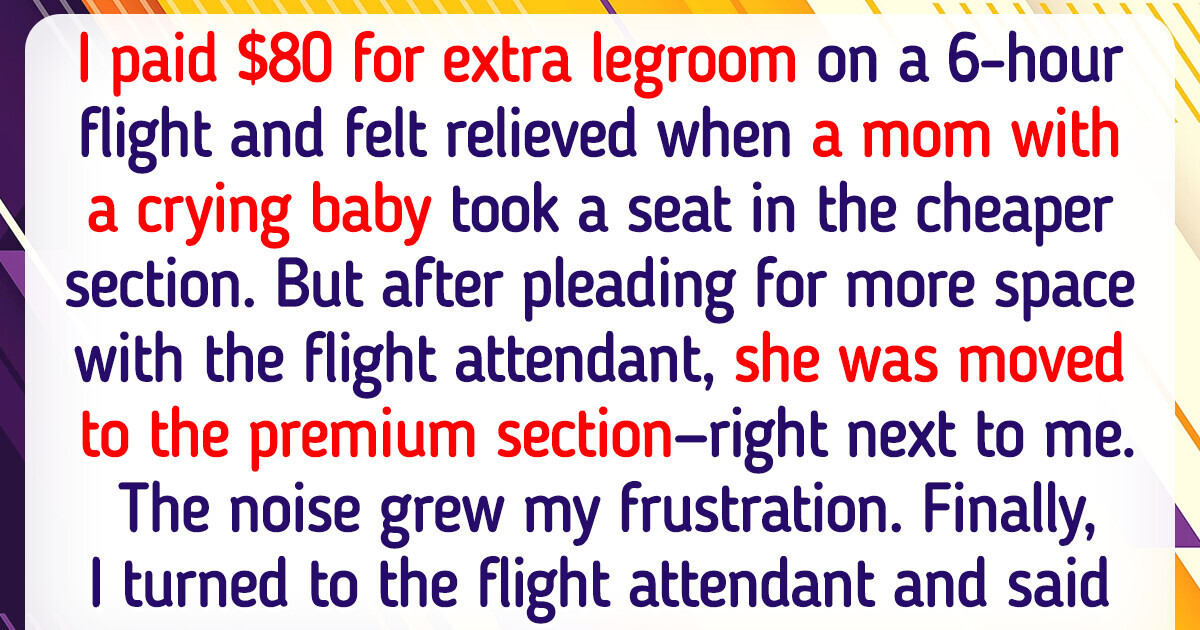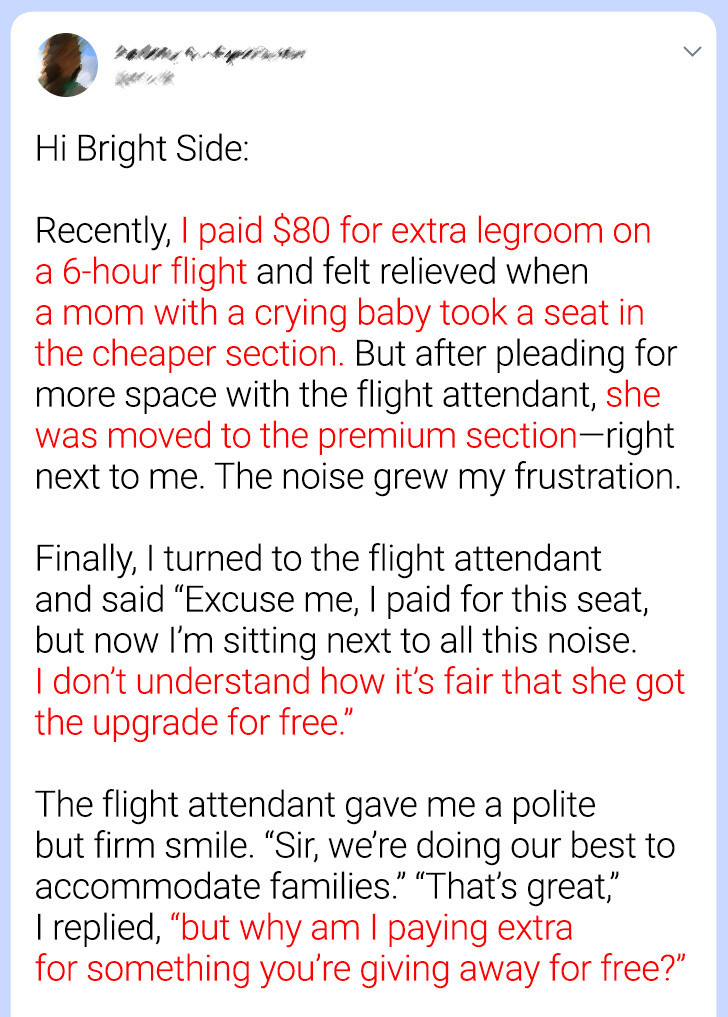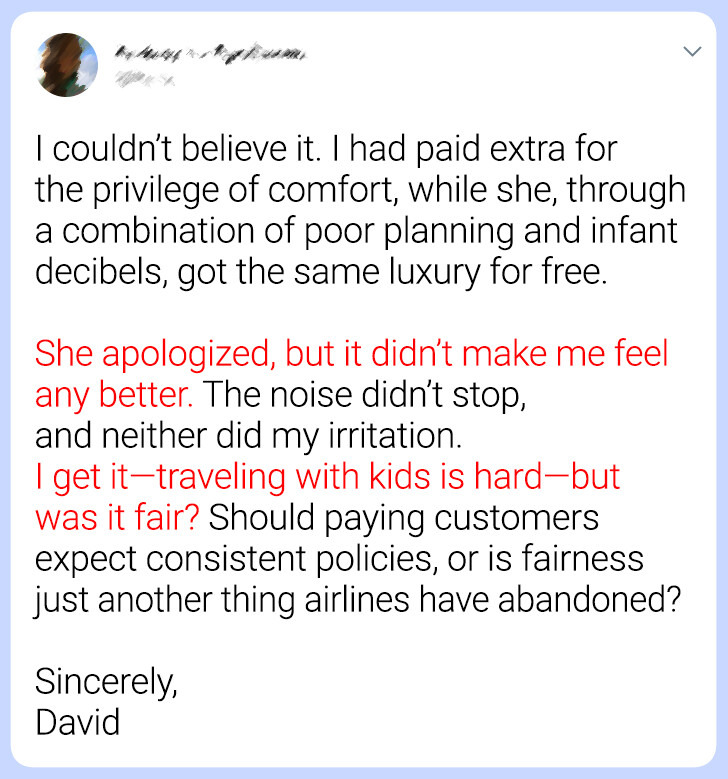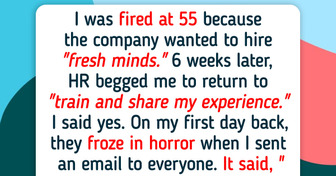ɢᴏᴏɢʟᴇ ᴘᴀʏ 𝟸𝟸𝟶 ʙᴜᴄᴋs ᴘᴇʀ ʜᴏᴜʀ ᴍʏ ʟᴀsᴛ ᴘᴀʏ ᴄʜᴇᴄᴋ ᴡᴀs 𝟾𝟻𝟶𝟶 ᴅᴏʟʟᴀʀs ᴡᴏʀᴋɪɴɢ 𝟷ᴏ ʜᴏᴜʀs ᴀ ᴡᴇᴇᴋ ᴏɴʟɪɴᴇ... qoo.by/ylcagt
I Spent $80 on an Extra-Legroom Seat, It’s Not Fair That a Woman Got It for Free

Air travel is no stranger to uncomfortable situations, but this one struck a nerve. A passenger recently shared their experience of paying $80 for a seat, only to find themselves next to a mother with a crying baby who had been moved into the premium section for free. The incident raises valid questions about fairness and the inconsistency of airline policies.

yfyujhj
I think, I can never earn over which I paid by my precedent employer, but I was wrong, world is so large to try their fate. but now I am making $52/h even more,and easily earn minimum $1300/week, on the experience everyone must try to do work online, easy way to earn, here's an example.
𝐰𝐰𝐰.Richnow1

I understand the frustration of paying extra for a premium seat only to have its exclusivity compromised. Clear communication from airlines about their seating policies could help manage passenger expectations and prevent such situations. Ensuring that all passengers feel their purchases are respected is crucial for customer satisfaction.

Thank you, David, for telling us your story. We understand your frustration, paying extra for legroom is a deliberate choice, often made to enhance the flying experience or to address specific needs. When someone sacrifices that comfort without proper compensation, it’s easy to feel resentful, even when the request comes from a place of good intentions.

The Fairness Dilemma
At its core, this situation highlights a conflict between compassion and fairness. From a psychological standpoint, our brains are wired to respond sympathetically to a crying baby. According to studies, infant cries activate regions associated with caregiving and attention.
However, this biological response doesn’t negate the feelings of unfairness experienced by someone who has paid for an upgraded service only to see its value diminished. The passenger’s frustration is understandable. They planned ahead, paid extra, and expected a certain level of comfort. When that expectation wasn’t met—and worse, when someone else seemingly "skipped the line"—it created a sense of inequity.
Research on fairness shows that humans are particularly sensitive to situations where others receive benefits without equal effort or cost. This sensitivity is magnified in scenarios where money is involved, as financial investments often carry an expectation of exclusivity.

Solutions for Airlines
Airlines play a critical role in managing these conflicts, and there are ways to address them without leaving passengers feeling shortchanged. Here are a few practical solutions:
Designated Family Sections: Creating a designated area for families with young children can minimize disruptions for other passengers while ensuring families have the space they need.
Clear Compensation Policies: If a passenger is moved or asked to accommodate someone else, airlines should offer immediate compensation, such as refunds or travel credits, to acknowledge the inconvenience.
Voluntary Seat Swaps: Airlines could establish a system where passengers willing to switch seats can opt in, ensuring any changes are consensual and potentially rewarded with perks.

Managing Frustration in the Moment
While the passenger’s feelings of unfairness are valid, it’s important to recognize that such situations often call for emotional resilience. Flying can be unpredictable, and staying calm in the face of unexpected challenges can help minimize stress for everyone involved.
Reframe the Situation: Instead of focusing on the perceived injustice, try shifting your perspective. Recognize that the mother and child were likely in a difficult situation, and their upgrade wasn’t a personal slight. Empathy can help diffuse feelings of resentment.
Practice Breathing Techniques: When frustration builds, deep breathing can help regulate emotions. Inhale deeply for a count of four, hold for four, and exhale for four. This simple technique can help calm your mind and prevent reactive behavior.
Use Noise-Canceling Tools: Preparation is key for frequent travelers. Investing in noise-canceling headphones or earplugs can help you maintain your comfort regardless of disruptions around you.
Communicate Calmly: If you need to express your concerns, do so calmly and respectfully. Instead of framing the issue as unfair, you might say, “I’m finding it difficult to relax with the extra noise. Is there another way to address this?” This approach is more likely to elicit a constructive response.

Why It’s Worth Letting Go
Holding onto anger during a flight only amplifies stress. Research shows that practicing acceptance in uncontrollable situations can lead to better mental well-being. By choosing to let go of frustration, you not only improve your own experience but also contribute to a more pleasant environment for everyone onboard.

Your home should feel like a sanctuary. Yet, some common interior design mistakes can instantly cheapen the look of your space—without you even realizing it. From outdated lighting to mismatched furniture, these subtle missteps are easier to fix than you think.
Comments
Absolutely I would 💯 be miffed if a screaming child was upgraded to a first class seat or seats that cost extra just to make the mothers job easier. If you have kids you should consider arranging seats in advance not just blag a free upgrade . I think all kids under 5 should be banned from flying anyway unless the child is either going to sleep or has parents that actually enforce rules that consider other passengers eg no screaming or kicking seats or playing videos on high volume.
Related Reads
12 People Who Were Shocked After Accidentally Overhearing a Conversation

I Cut Off My Parents After They Demanded My Inheritance—and I Don’t Regret It

12 Moments That Show Romance Is Really About Small Acts of Kindness

15+ Stories That Prove Some House Guests Are Impossible to Forget

I Refuse to “Show Dedication” by Working an Unpaid Weekend

I Was Fired for My Age, Now HR Is Begging Me to Return

My Dad Refused to Come to My Wedding, but I Still Asked for the Gift

My Cousin Uninvited Me to Save Money—My Petty Revenge Was Absolutely Worth It

I Refuse to Adopt My Dying SIL’s Baby—Her Last Words Left Me Frozen

I Refused to Put My Health at Risk Because of My Job, Now HR Got Involved

I Refuse to Help My Coworker Who Treats My Kindness Like an Obligation

15 Times People Refused to Be Mean—And Kindness Proved More Powerful
